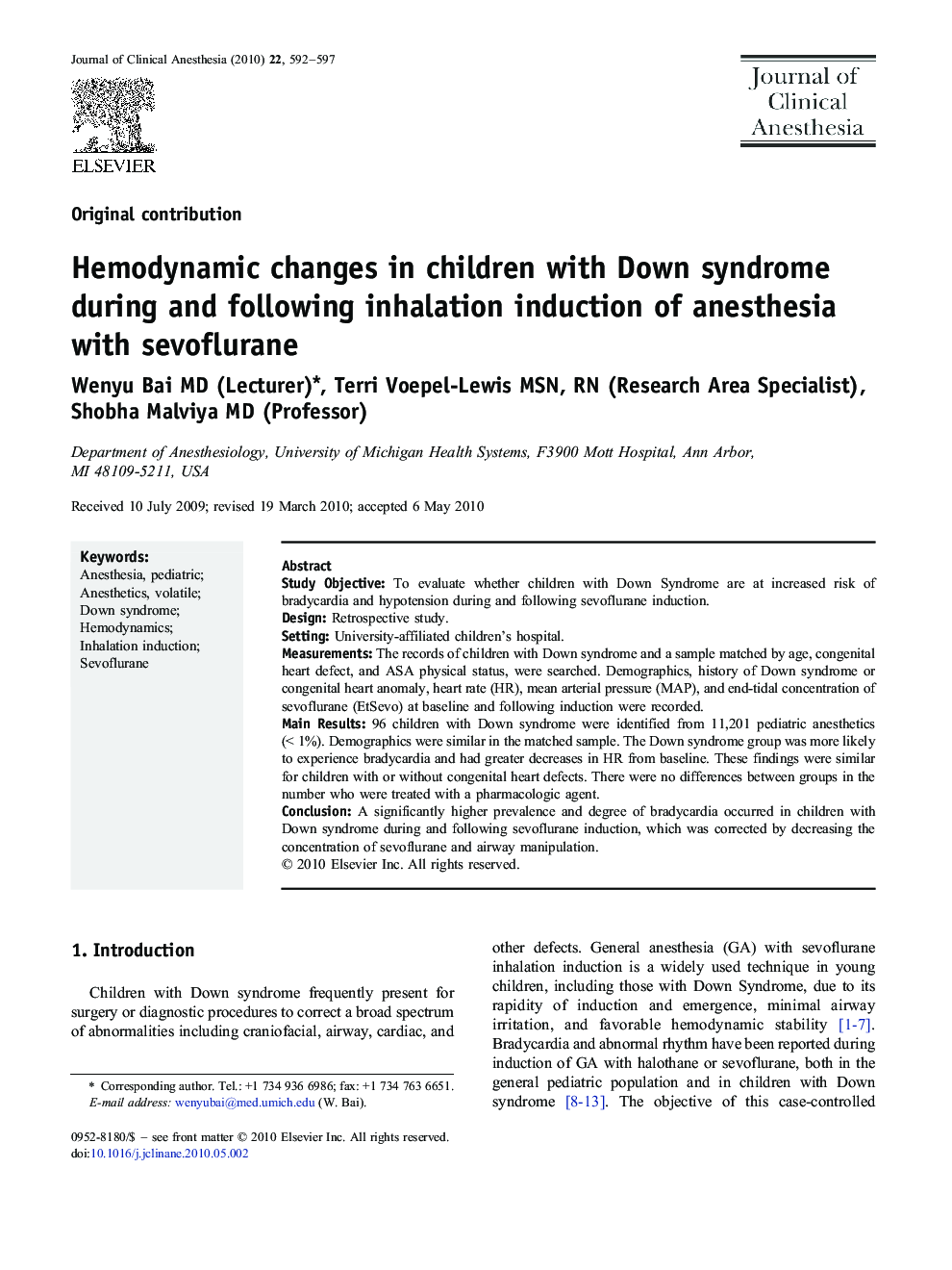| Article ID | Journal | Published Year | Pages | File Type |
|---|---|---|---|---|
| 2763415 | Journal of Clinical Anesthesia | 2010 | 6 Pages |
Study ObjectiveTo evaluate whether children with Down Syndrome are at increased risk of bradycardia and hypotension during and following sevoflurane induction.DesignRetrospective study.SettingUniversity-affiliated children's hospital.MeasurementsThe records of children with Down syndrome and a sample matched by age, congenital heart defect, and ASA physical status, were searched. Demographics, history of Down syndrome or congenital heart anomaly, heart rate (HR), mean arterial pressure (MAP), and end-tidal concentration of sevoflurane (EtSevo) at baseline and following induction were recorded.Main Results96 children with Down syndrome were identified from 11,201 pediatric anesthetics (< 1%). Demographics were similar in the matched sample. The Down syndrome group was more likely to experience bradycardia and had greater decreases in HR from baseline. These findings were similar for children with or without congenital heart defects. There were no differences between groups in the number who were treated with a pharmacologic agent.ConclusionA significantly higher prevalence and degree of bradycardia occurred in children with Down syndrome during and following sevoflurane induction, which was corrected by decreasing the concentration of sevoflurane and airway manipulation.
